
William Grant Still Jr. was an American composer of nearly two hundred works, including five symphonies, four ballets, nine operas, over thirty choral works, art songs, chamber music, and solo works. Born in Mississippi and growing up in Little Rock, Arkansas, Still attended Wilberforce University and Oberlin Conservatory of Music as a student of George Whitefield Chadwick and then Edgard Varèse. Because of his close association and collaboration with prominent African-American literary and cultural figures, Still is considered to be part of the Harlem Renaissance.

William Elden Bolcom is an American composer and pianist. He has received the Pulitzer Prize, the National Medal of Arts, a Grammy Award, the Detroit Music Award and was named 2007 Composer of the Year by Musical America. He taught composition at the University of Michigan from 1973 until 2008. He is married to mezzo-soprano Joan Morris.
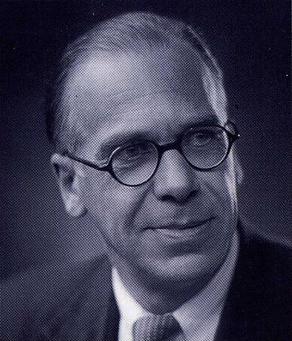
William Alwyn, was an English composer, conductor, and music teacher.
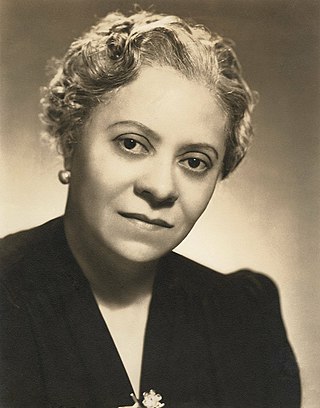
Florence Beatrice Price was an American classical composer, pianist, organist and music teacher. Born in Little Rock, Arkansas, Price was educated at the New England Conservatory of Music, and was active in Chicago from 1927 until her death in 1953. Price is noted as the first African-American woman to be recognized as a symphonic composer, and the first to have a composition played by a major orchestra. Price composed over 300 works: four symphonies, four concertos, as well as choral works, art songs, chamber music and music for solo instruments. In 2009, a substantial collection of her works and papers was found in her abandoned summer home.
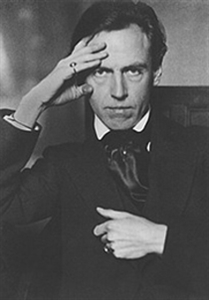
Cyril Meir Scott was an English composer, writer, poet, and occultist. He created around four hundred musical compositions including piano, violin, cello concertos, symphonies, and operas. He also wrote around 20 pamphlets and books on occult topics and natural health.

A threnody is a wailing ode, song, hymn or poem of mourning composed or performed as a memorial to a dead person. The term originates from the Greek word θρηνῳδία (threnoidia), from θρῆνος and ᾠδή, the latter ultimately from the Proto-Indo-European root *h₂weyd- that is also the precursor of such words as "ode", "tragedy", "comedy", "parody", "melody" and "rhapsody".

Wallingford Constantine Riegger was an American modernist composer and pianist, best known for his orchestral and modern dance music. He was born in Albany, Georgia, but spent most of his career in New York City, helping elevate the status of other American composers such as Charles Ives and Henry Cowell. Riegger is noted for being one of the first American composers to use a form of serialism and the twelve-tone technique.

Kenneth Daniel Fuchs is a Grammy Award-winning American composer. He currently serves as Professor of Music Composition at the University of Connecticut in Storrs.
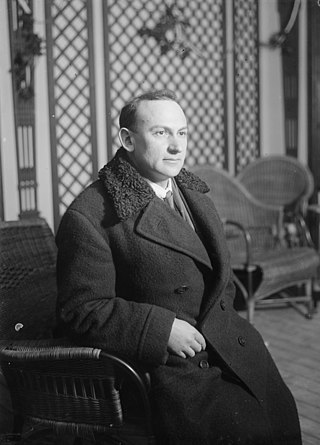
Joseph Yulyevich Achron, also seen as Akhron was a Russian-born Jewish composer and violinist, who settled in the United States. His preoccupation with Jewish elements and his desire to develop a "Jewish" harmonic and contrapuntal idiom, underscored and informed much of his work. His friend, the composer Arnold Schoenberg, described Achron in his obituary as "one of the most underrated modern composers".
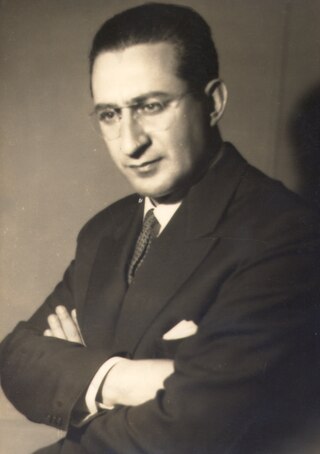
Mozart Camargo Guarnieri was a Brazilian composer.

William P. Perry is an American composer and producer of television and film. His music has been performed by the Chicago Symphony, the Saint Louis Symphony, the Detroit Symphony and the symphonic orchestras of Cincinnati, Minnesota, Montreal, Calgary and Hartford as well as the Vienna Symphony, the Rome Philharmonic, the Slovak Philharmonic, the RTÉ National Symphony of Ireland and other orchestras in Europe.

Samuel Jones is an American composer and conductor.
Avner Dorman is an Israeli-born composer, educator and conductor.
Adam Von Ahnen Carse was an English composer, academic, music writer and editor, remembered today for his studies on the history of instruments and the orchestra, and for his educational music. His collection of around 350 antique wind instruments is now in the Horniman Museum.

Lucijan Marija Škerjanc was a Slovene composer, music pedagogue, conductor, musician, and writer who was accomplished on and wrote for a number of musical instruments such as the piano, violin and clarinet. His style reflected late romanticism with qualities of expressionism and impressionism in his pieces, often with a hyperbolic artistic temperament, juxtaposing the dark against melodic phrases in his music.

Ina Boyle was an Irish composer. Her compositions encompass a broad spectrum of genres and include choral, chamber and orchestral works as well as opera, ballet and vocal music. While a number of her works, including The Magic Harp (1919), Colin Clout (1921), Gaelic Hymns (1923–24), Glencree (1924-27) and Wildgeese (1942), received acknowledgement and first performances, the majority of her compositions remained unpublished and unperformed during her lifetime.
Pamela Harrison was an English composer, pianist and music teacher.
Theodore Samuel Holland, OBE, was a British composer and academic. Born in Wimbledon, Holland attended Westminster School and then the Royal College of Music, where his composition teacher was Frederick Corder. A further period of study followed at the Musikhochschule in Berlin under Joseph Joachim.

Africa is a 1930 symphonic poem in three movements by American composer William Grant Still. The work, originally scored for chamber orchestra, was first performed in 1930 by French flautist Georges Barrère and, in a full orchestra version, by Howard Hanson on October 24, 1930, at the Eastman School of Music in Rochester, New York. The work is about twenty-eight minutes long.

Kaintuck' (Kentucky) is a 1935 symphonic poem for piano and orchestra by American composer William Grant Still.














